BUDDHIST PHILOSOPHY
BUDDHIST PHILOSOPHY
Essential Readings
Edited by
William Edelglass
Jay L. Garfield


Oxford University Press, Inc., publishes works that further
Oxford Universitys objective of excellence
in research, scholarship, and education.
Oxford New York
Auckland Cape Town Dar es Salaam Hong Kong Karachi
Kuala Lumpur Madrid Melbourne Mexico City Nairobi
New Delhi Shanghai Taipei Toronto
With offices in
Argentina Austria Brazil Chile Czech Republic France Greece
Guatemala Hungary Italy Japan Poland Portugal Singapore
South Korea Switzerland Thailand Turkey Ukraine Vietnam
Copyright 2009 by Oxford University Press, Inc.
Published by Oxford University Press, Inc.
198 Madison Avenue, New York, New York 10016
www.oup.com
Oxford is a registered trademark of Oxford University Press
All rights reserved. No part of this publication may be reproduced,
stored in a retrieval system, or transmitted, in any form or by any means,
electronic, mechanical, photocopying, recording, or otherwise,
without the prior permission of Oxford University Press.
Library of Congress Cataloging-in-Publication Data
Buddhist philosophy : essential readings/ edited by William Edelglass
and Jay L. Garfield.
p. cm.
Includes translations of texts from various languages.
ISBN: 978-0-19-532817-2 (pbk.); 978-0-19-532816-5 (cloth)
I. Philosophy, Buddhist. 2. BuddhismDoctrines. I. Edelglass, William.
II. Garfield, Jay L., 1955
B162.B847 2009
181.043dc22 2008018648
9 8 7 6 5 4 3 2 1
Printed in the United States of America
on acid-free paper
True vision is the vision that consists
of knowledge, nothing else; this is
why a scholar should focus on
seeking knowledge of reality.
Wisdom is the ambrosia that brings
satisfaction, the lamp whose light
cannot be obscured, the steps on the
palace of liberation, and the fire that
burns the fuel of the defilements.
Bhviveka
Dedicated with gratitude to our
teachers and students, from whom
we have learned so much.
Acknowledgments
We gratefully acknowledge the careful editorial work on this volume by Claudine Davidshofer, Kris Miranda, and Jason Stigliano, philosophy students at Colby College. We would also like to acknowledge Colby College for its generous support of Claudines work as a summer research assistant and the Colby Department of Philosophy for funding Kris and Jasons editorial assistance. For assembling the index with his characteristic skill and care, we gratefully acknowledge Peter Blair of Marlboro College. Finally, we would like to express our gratitude to Peter Ohlin and his editorial team at Oxford for their support of this project.
Contents
Noa Ronkin
Jay L Garfield
Jay L Garfield
James Blumenthal
Matthew T Kapstein
Alan Fox
Graham Parkes
Bret W. Davis
Richard Hayes
Malcolm David Eckel
Jos Ignacio Cabezn
Peter N. Gregory
Steven Heine
Michel Mohr
Peter Harvey
Dan Arnold
Brendan S. Gillon
Dan Lusthaus
Leonard W. J. van der Kuijp
Jay L Garfield
Brook Ziporyn
Bret W. Davis
Peter Harvey
Dan Lusthaus
James Duerlinger
Charles Goodman
C. W. Huntington, Jr.
Matthew T. Kapstein
Hans-Rudolfh Kantor
Jin Y. Park
Gereon Kopf
Peter Harvey
William Edelglass
Gareth Sparham
Jin Y. Park
William Edelglass
William Edelglass
Karma Lekshe Tsomo
Contributors
DAN ARNOLD is Assistant Professor of Philosophy of Religion at the University of Chicago Divinity School. His first bookBuddhists, Brahmins, and Belief: Epistemology in South Asian Philosophy of Religion (Columbia University Press, 2005)won an American Academy of Religion Award for Excellence in the Study of Religion.
JAMES BLUMENTHAL is Associate Professor of Buddhist Philosophy in the Philosophy Department at Oregon State University. He is the author of The Ornament of the Middle Way: A Study of the Madhyamaka Thought of ntarak ita (2004) and editor of Incompatible Visions: South Asian Religions in History and Culture (2006).
ita (2004) and editor of Incompatible Visions: South Asian Religions in History and Culture (2006).
JOS IGNACIO CABEZN is XIVth Dalai Lama Professor of Tibetan Buddhism and Cultural Studies at the University of California, Santa Barbara. Cabezn is author, editor, or translator of eleven books and over thirty articles. His most recent book, Freedom from Extremes (with Geshe Lobsang Dargyay), is a translation of a sixteenth-century Tibetan polemical work on the doctrine of emptiness.
BRET W. DAVIS is Assistant Professor of Philosophy at Loyola University Maryland. In addition to earning a Ph.D. in Western philosophy, he also spent over a decade in Japan working on Buddhist and Japanese philosophy. He is author of Heidegger and the Will and coeditor of Japanese Philosophy in the World (in Japanese).
JAMES DUERLINGER is Professor of Philosophy at the University of Iowa. He is the author of the Indian Buddhist Theories of Persons (2003), Platos Sophist (2004), and numerous articles on topics in Buddhist philosophy, ancient Greek philosophy, and the philosophy of religion.
MALCOLM DAVID ECKEL is Assistant Dean and Director of the Core Curriculum at Boston University. His scholarly interests focus on Buddhist philosophy in India and Tibet, particularly the tradition known as Svatantrika-Mad-hyamika. He is the author of Buddhism (Oxford, 2002), To See the Buddha: A Philosophers Quest for the Meaning of Emptiness (Princeton, 1994), Jnagarbhas Commentary on the Distinction between the Two Truths (SUNY, 1987), and numerous articles on the Indian and Tibetan tradition.
WILLIAM EDELGLASS is Assistant Professor of Philosophy at Marlboro College. Previously he taught at the Institute of Buddhist Dialectics, Dharamsala, India. His research focuses on Buddhist philosophy, environmental philosophy, and twentieth-century continental philosophy.
ALAN FOX received his Ph.D. in religion from Temple University in 1988, and joined the Philosophy Department at the University of Delaware in 1990. He has published on Daoism and Chinese Buddhism, and has won numerous teaching awards.
JAY L. GARFIELD is Doris Silbert Professor in the Humanities and Professor of Philosophy at Smith College, Professor in the Graduate Faculty of Philosophy at the University of Massachusetts, Professor of Philosophy at Melbourne University, and Adjunct Professor of Philosophy at the Central Institute of Higher Tibetan Studies. His most recent books are his translation of Tsong Khapas commentary on Nagarjunas Mlamadhyamakakrik (Ocean of reasoning) and Empty Words: Buddhist Philosophy and Cross-cultural Interpretation.
BRENDAN S. GILLON has taught at the University of Alberta and the University of Toronto, in their departments of philosophy, and now teaches in McGill Universitys department of linguistics. His many publications are primarily concerned with natural language semantics, Sanskrit linguistics, and the history of logic and metaphysics in early classical India.
Next page

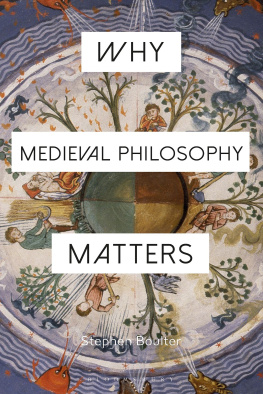
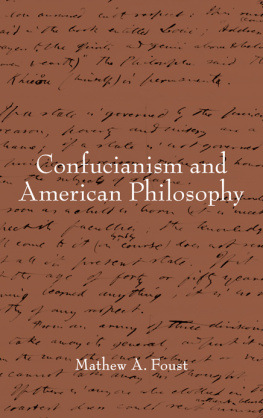
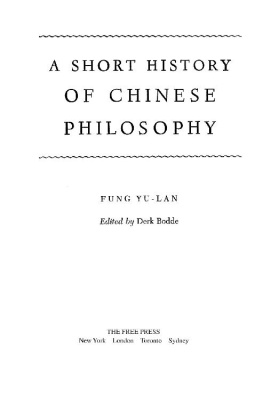
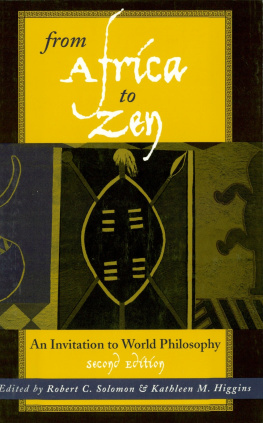
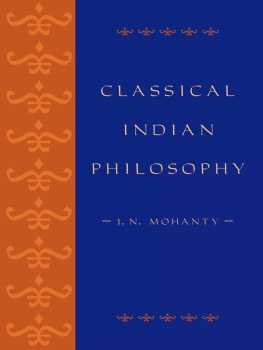
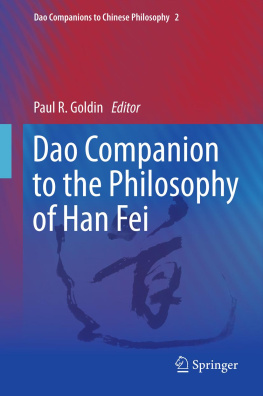
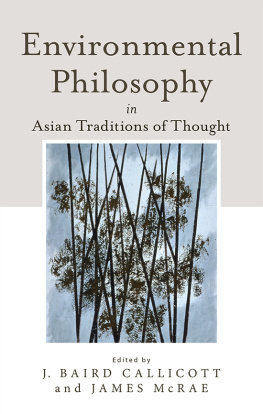
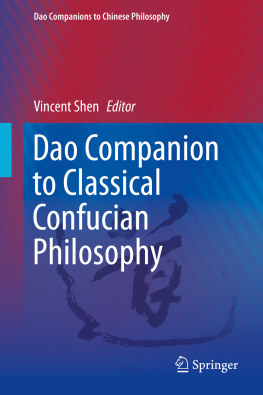
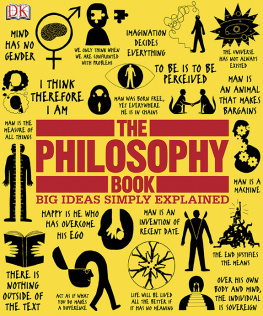


 ita (2004) and editor of Incompatible Visions: South Asian Religions in History and Culture (2006).
ita (2004) and editor of Incompatible Visions: South Asian Religions in History and Culture (2006).